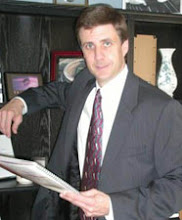Everyone makes mistakes. I used to work with someone who said: “Show me a man who doesn’t make mistakes and I’ll show you a man who’s not doing anything.” While, true, this is no reason not to strive for perfection. While some mistakes are harmless and can even go unnoticed (an insignificant typo, for example) others are costly.
If one could take the income statement for a business and capture “mistakes” (just like we capture rent or any other line item), I think everyone would be surprised by the result. Mistakes have a ripple effect almost no matter where they start in the organization. Unless caught immediately, there is often substantially more work involved in fixing the problem than in performing the original task. Furthermore, the resources required to fix the mistake are usually “higher up the food chain” and are therefore more expensive. If we could calculate the cost of mistakes, we could make thoughtful decisions about how much to spend to address the various underlying issues. Unfortunately, unless you are in a manufacturing environment that tracks rework costs, the vast majority of the expense of fixing mistakes is “swept under the rug.”
As you think about improving the effectiveness of your organization, think about the source of mistakes and what you can do to eliminate them. While I’m tempted to cite some examples of costly mistakes I have seen over the years, I certainly wouldn’t want anyone to recognize themselves and take this article as an indictment of their performance. Moreover, I don’t want to give the impression that I’m above a mistake from time to time. No one is.
Since it can take hours to fix a mistake that often could have been prevented with a few extra minutes, it’s almost always worth the time to do some root cause analysis. Once the cause is understood, then “brainstorming” some ways to fix the problem is the next step. Below are some questions which are intended to provide some “food for thought” as you work your way through this process.
o Would a change to procedures help?
o Do mistakes stem from a particular vendor?
o Does a process need to be better documented?
o Does the person making the mistake know about the issue or are they in need of some feedback so that they can be aware of the problem?
o Is there a mechanical or technology fix that would identify the issue sooner or prevent it from occurring?
o Could someone inspect or review the work before it moves along in the process?
o Might a class or some training help the person doing the work?
o Is a change in staff necessary?
Obviously, this list isn’t all inclusive; rather it is intended to stimulate discussion.
I’d encourage every organization to take action to minimize errors in 2010 thereby improving overall business performance. The time and energy spent fixing errors can certainly be more productively deployed growing the business and better serving the customer.
If your business could benefit from fractional CFO services, I would welcome the chance to speak with you. Please give me a call at (314) 863-6637 or send an email to
your cash is flowing. know where.®
Ken Homza
Copyright @ 2009 Homza Consulting, Inc.
Subscribe to:
Post Comments (Atom)

No comments:
Post a Comment
Note: Only a member of this blog may post a comment.